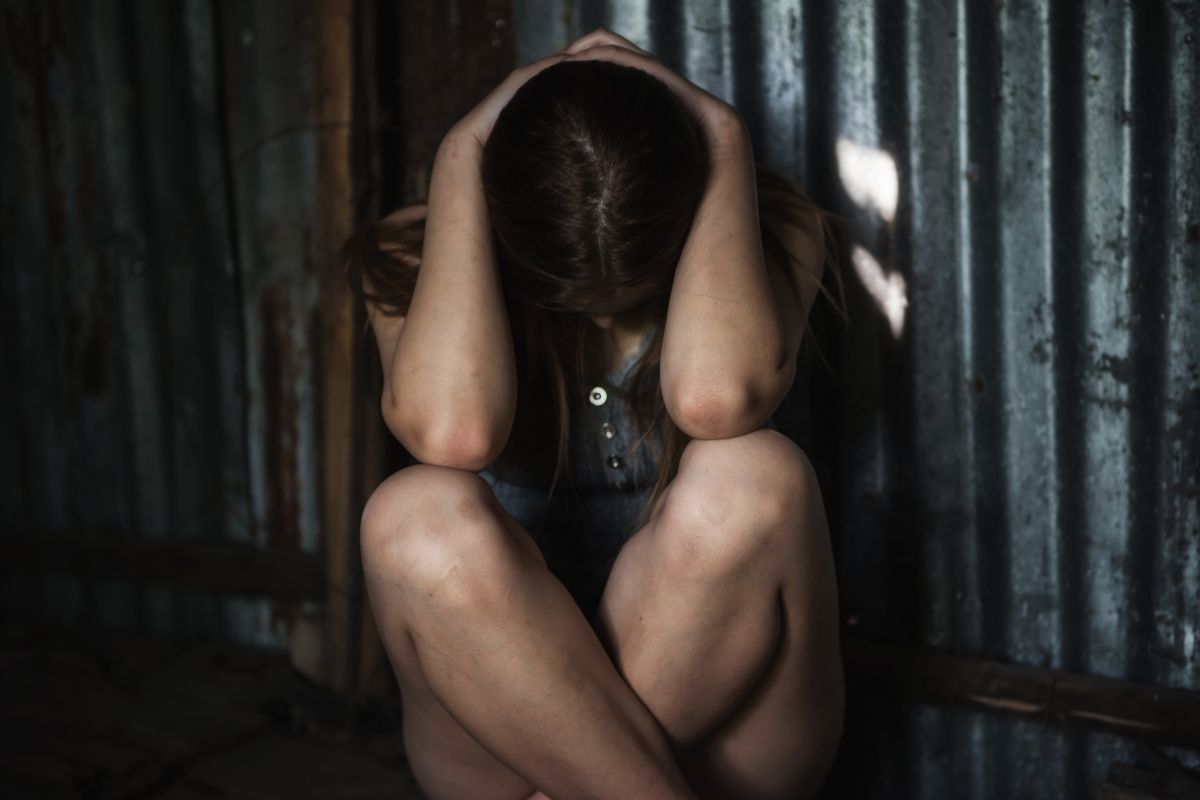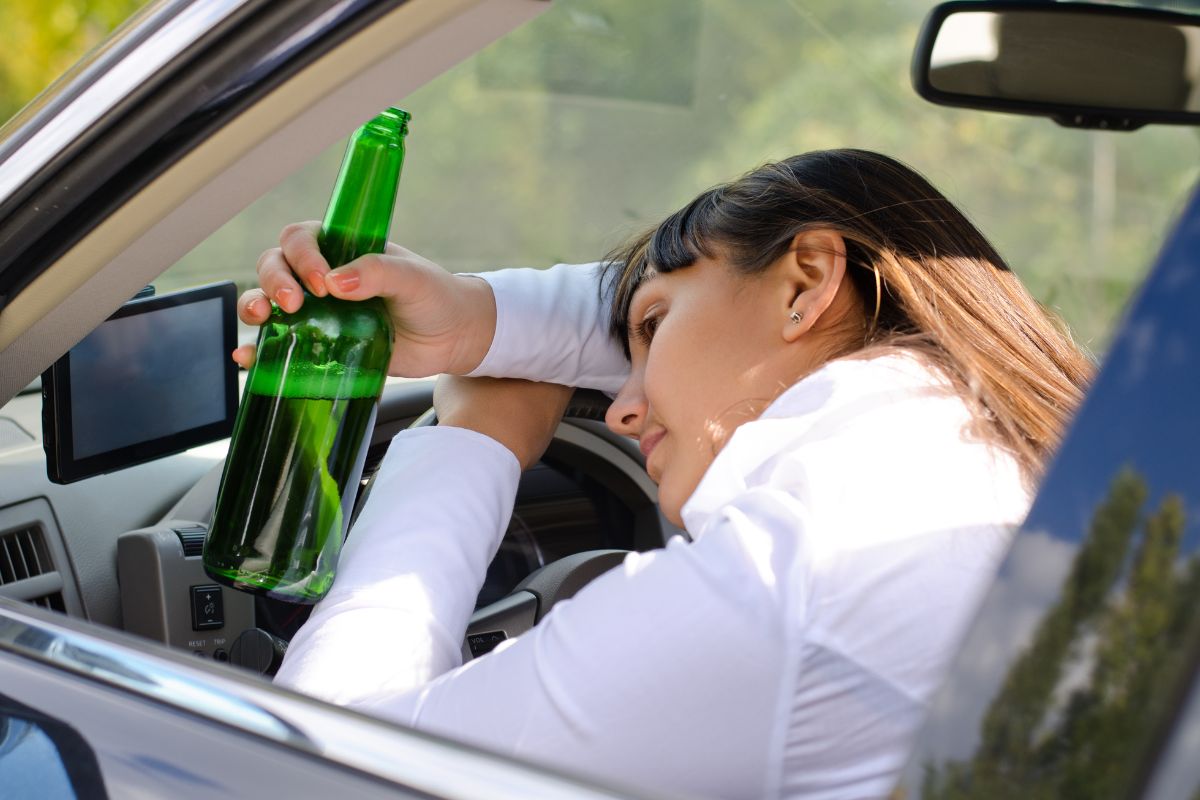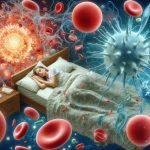The excessive consumption of alcohol is a serious problem in our society and has become a major health concern worldwide.

The World Health Organization estimates that over 200 million people suffer from alcoholism globally, and the health issues that arise from overconsumption of alcohol are numerous.
Alcoholic beverages contain ethanol, a chemical compound that affects the brain, and this can cause changes in the way that the brain processes information.
These changes can cause problems such as memory loss, confusion, aggression, anxiety, depression, hallucinations, delusions, sleep disorders, seizures, coma, and death.
Alcohol psychosis (see also ‘Is Alcoholism A Mental Illness?‘) occurs when someone experiences symptoms caused by alcohol consumption and usually develops after years of heavy drinking.
Symptoms include paranoia, hallucinations, and delusions and, if left untreated, the condition has the potential to be fatal.
To help you understand this condition more clearly, we took a closer look at alcohol psychosis and put together everything you need to know about the causes, signs, and symptoms.
What Is Alcohol Psychosis?
Alcohol psychosis refers to a condition where an individual suffers from psychotic symptoms due to their excessive use of alcohol.
This condition is also known as alcoholic psychoses or acute alcoholic psychoses.
It is important to note that there is no specific diagnostic test for this condition, so it is often difficult to diagnose accurately.
The term ‘alcohol psychosis’ was first coined in 1892 by German psychiatrist Emil Kraepelin, who described the condition as being characterized by “delusions, hallucinations, and mental disturbances”.
The exact mechanism behind how alcohol affects the brain is not fully understood, but scientists believe that it may affect neurotransmitters and receptors.
For example, some studies have shown that alcohol increases dopamine levels in the brain, which could explain why many of the symptoms associated with alcohol psychosis occur during periods of high stress.
There are two main types of alcohol psychosis:
- Acute alcohol psychoses: A person suffering from these symptoms will experience them within hours of consuming large amounts of alcohol. They tend to last between one day and several weeks.
- Delusional alcoholics: People who develop delusional beliefs while they are intoxicated.
How Does Alcohol Cause Psychosis?

Alcoholic psychosis is thought to be triggered by the effects of alcohol on the brain. When alcohol enters the bloodstream, it travels through the blood vessels to the brain.
Once inside the brain, alcohol binds to certain proteins called receptors. These receptors help control the release of chemicals and hormones in the body.
However, if a person has an abnormal number of receptors, then alcohol can bind more easily than normal.
This leads to higher levels of dopamine in the brain – dopamine is a chemical messenger that helps regulate emotions and behavior.
In people who suffer from schizophrenia, excessive dopamine activity causes hallucinations and delusions.
Scientists believe that alcohol may cause similar changes in the brain, leading to psychotic episodes.
Alcohol-induced psychosis usually occurs when a person consumes a very large amount of alcohol over a short period of time.
Although no one is sure exactly how much alcohol is needed to trigger a psychotic episode, experts estimate that about four standard drinks (equivalent to 1.5 liters of pure alcohol) would do so.
In addition, heavy drinking tends to increase the risk of developing alcohol-related mental health conditions, including alcohol dependence and alcoholism.
Symptoms Of Alcohol Psychosis
The following are among the most common signs of acute alcohol psychoses:
Hallucinations
Some people who drink excessively may start seeing things that aren’t really there.
For example, they may see shadows, hear voices, smell odors, or even sense that something is crawling on them.
Smelling odors, sensing that objects are moving, or feeling pain without any physical reason for these sensations are also signs of hallucinations.
Delusions
Someone who is deluded may think that they are special in some way, or that others are conspiring against them to cause harm or distress.
The sufferer may also believe that their thoughts cannot be read by others, that they know what others are thinking, that others are plotting against them, or that their identity is not their own.
Paranoia
Someone who is paranoid may feel like everyone around them is out to get them, or that they are being watched. They may also believe that other people are plotting against them.
Extreme Mood Swings
Someone who is experiencing extreme mood swings may become agitated, aggressive, depressed, or withdrawn.
Difficulty Sleeping
If someone is having trouble sleeping because of alcohol intoxication, then this can lead to further problems such as anxiety, depression, and irritability.
Issues with concentration can also be a symptom of alcohol dependency or psychosis.
How To Identify If You Are At Risk Of Developing Alcohol Psychosis
People who have consumed alcohol in excess – that is, drinking large amounts on a daily basis – are at a much higher risk of developing alcohol psychosis.
Your family history could also increase your risk; if there is a history of psychosis or mental illness within your family, your risk of developing symptoms are heightened.
If you are worried that your drinking might be putting your mental health at risk, talk to your doctor.
Your doctor will ask questions about your medical history, family history, lifestyle choices, and current medications, conduct an assessment to determine whether you are at risk of developing alcohol psychosis, as well as offer advice on how to reduce your chances of getting into this condition.
Alcohol Psychosis Treatment And Recovery
There is currently no cure for alcohol psychoses, but treatment can help manage the symptoms.
In mild cases, your doctor may recommend counseling, medication, and/or psychological therapy.
In more severe cases, your doctor may prescribe antipsychotic medication.
These medicines work by blocking certain chemicals in the brain that are involved in causing psychotic symptoms.
In rare cases, electroconvulsive therapy (ECT) may be used to treat alcohol psychosis.
ECT involves passing a small electric current through the brain to induce a brief seizure. This procedure has been proven effective in treating schizophrenia but is only recommended for people who do not respond to other treatments.
Final Thoughts
Recovery from alcohol psychosis requires long-term support and care, and it is crucial that you have the support you need.
If you suspect that you or a loved one is displaying symptoms of alcohol psychosis, it is important to contact a medical professional as soon as possible to discuss the best way to move forward.
- Understanding Male Reproductive Health: A Complete Guide - February 2, 2025
- Simple Healthy Skin Habits for Radiant Skin - December 6, 2024
- Unlocking the Connection Between Nutrition and Mental Health - December 3, 2024








